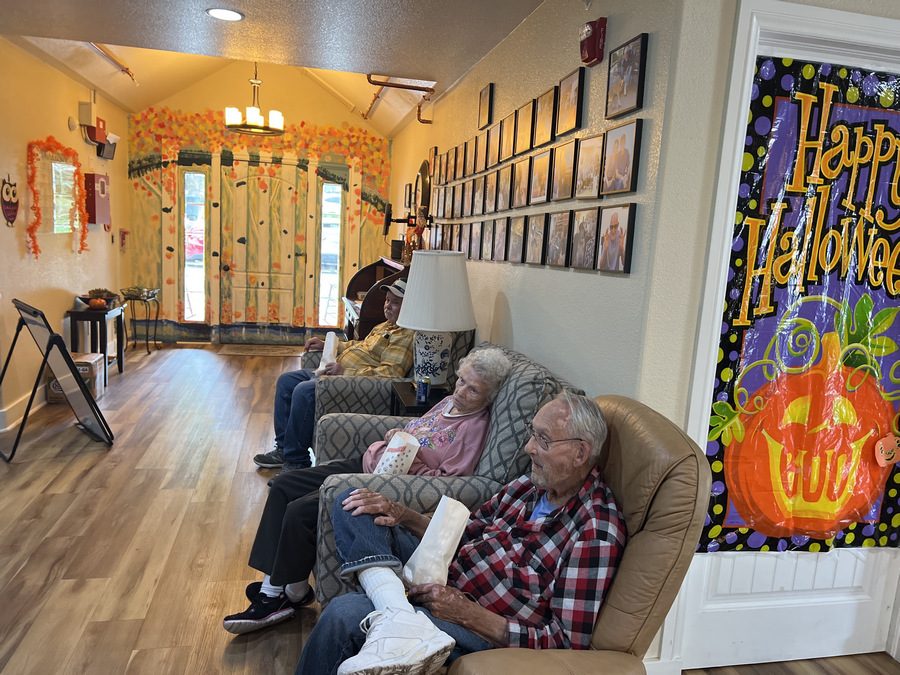When discussing assisted living vs. nursing homes, some people might not know the difference. It would help if you recognized what sets them apart before choosing which one would work best for your family.
As we age, things that used to be second nature can become complicated. Reminders of aging are usually gradual. Reaching for a pair of reading glasses turns into wearing bifocals during all waking hours. Then, suddenly, bending becomes difficult.
We can’t button our shirts, and we forget to turn off the stove. Perhaps regular check-ins from relatives, home modifications, or other services become necessary.
Caring for an aging senior or experiencing difficulty with everyday tasks may leave you wondering: is it time for additional support? What kind of help do I need? Can senior living offer a better quality of life?
Luckily, many kinds of senior living facilities or communities cater to one’s specific needs. Although having these options is great, starting from square one can be daunting. There are two major categories for senior living: assisted living communities and skilled nursing facilities.
Assisted living communities offer seniors their independence while being supported with day-to-day tasks that have become difficult. Nursing homes, however, provide residential care for those with medical disabilities that keep them from living on their own.
Are you still confused? Let’s compare the two.

Assisted Living
Assisted living communities cater to aging adults who don’t need continuous medical attention. Maybe you or your loved one have difficulty with stairs, eating, or doesn’t want to be alone. There are different levels of the involvement of caregivers among various communities.
Most communities resemble a hotel or apartment complex. Where some communities have staff provide activities, socialization, housekeeping, and transportation, other communities may have caregivers help bathe, feed, and clothe residents.
Many assisted living facilities, such as Applewood Our House, specialize in memory care for those with cognitive issues. This is the ideal living situation for adults diagnosed with Alzheimer’s disease or another type of dementia, as they train caregivers specifically to deal with the problems that come with dementia.
When searching for an assisted living community, it is essential to know what amenities each community offers, especially if the senior has a progressive medical condition.
Let’s face it — assisted living has a poor reputation. Many seniors think transitioning into assisted living will make them dependent or seem incapable. However, assisted living can give seniors more independence than they’ve had in years.
Assisted living facilities provide social events for residents, group outings, and just enough help to give seniors the energy to enjoy life instead of fumbling with daily activities.
If you or a loved one have experienced the following, it may be time to consider assisted living:
- Have fallen in the past six months
- Struggle with managing medication(s)
- Have a medical or chronic condition
- Feel depressed or isolated
- Need help with feeding, bathing, or dressing

Nursing Homes
Nursing homes are for people who require more care than their families can provide at an assisted living facility or home.
They provide 24-hour nursing care supervised by registered nurses, licensed practical nurses, and certified nursing assistants. Nursing staff can be assisted by dietary aides, housekeeping aids, nursing aides, orderlies, therapists, and social workers.
Nursing homes also provide medical services for residents. These may include:
- Injections and intravenous therapy
- Wound treatment and dressing changes
- Catheter or colostomy bag change
- Medication administration and management
They also offer daily living help such as: - Grooming
- Bathing/shaving/hygiene
- Dressing
- Incontinence care
- Toileting
Nursing homes look more institutional or resemble a hospital wing. The type of care provided at these facilities dictates the layout, as large medical equipment or medical personnel offices are often on-site.
When presented with a choice, most seniors prefer assisted living to nursing homes because of its setting. For this reason, when choosing a nursing home on behalf of another person, you need great compassion. Although it might not be what the senior wants, it might be what they need.
For someone whose medical needs require the additional services and full-time care that a hospital provides, moving from assisted living to a nursing home may be the best option.
Some families choose to move their loved ones into nursing homes when trips to the hospital become frequent to provide their loved ones with a comfortable and stable environment.
Others might choose nursing homes for when significant medical attention is needed after illness or infection. Many nursing homes also offer hospice services, palliative, and end-of-life care.

Knowing the Differences Between Assisted Living and Nursing Homes
Seniors in nursing homes typically have complex conditions that require round-the-clock monitoring, while assisted living residents need mainly custodial care, providing help in performing daily activities.
Finding the best place for you or a loved one can be stressful, confusing, and demanding. Knowing the differences can at least get you started in finding the best home for each senior.
One thing to note when considering moving yourself or a loved one into senior living is the cost. With extra equipment and highly trained staff, nursing homes are typically more expensive than assisted living facilities.
So, if assisted living best suits your loved one, it would be financially wise to consider the transition into a nursing home at another time. Some assisted living communities have partnerships with nursing homes or hospice facilities to help ease the transition.
Whatever the situation is for the senior in your life, rest assured that there is a place for them to thrive, whose staff live to care for their residents.
Senior living doesn’t have to be embarrassing or depressing. In fact, senior living can give the most outstanding comfort and independence your senior loved one has had in years.
Assisted Living vs Nursing Homes – Recap
Assisted living and memory care communities offer seniors their independence while being supported with day-to-day tasks that have become difficult.
Nursing homes, however, provide residential care for those with medical disabilities that keep them from living on their own.
To learn more about assisted living and memory care, contact Applewood Our House today!






